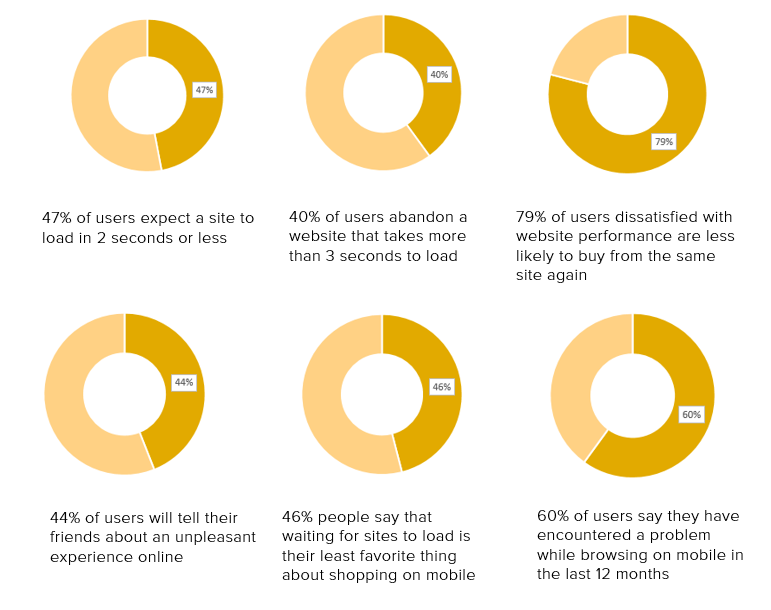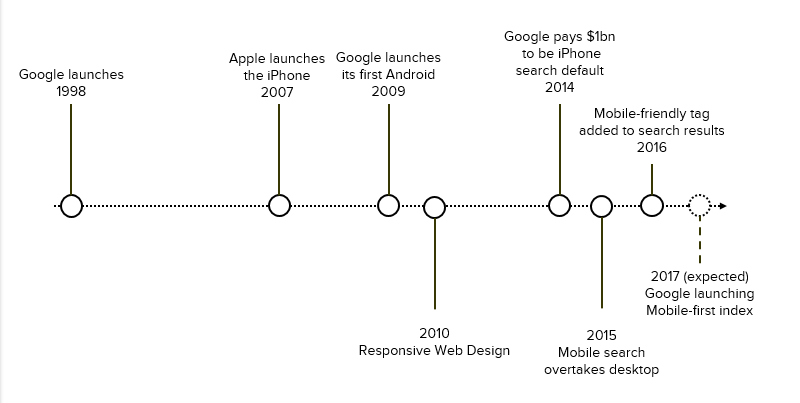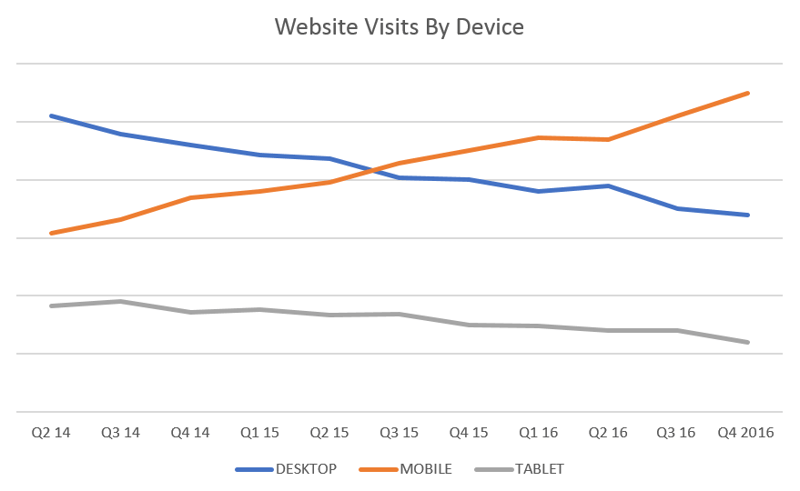Mobile bookings are a challenge for the hotel industry. Even as traffic on mobile continues rising to never-before-seen levels, conversion rates on mobile aren’t quite keeping up.
What are the stats, and what exactly is affecting conversion on mobile? What are the reasons that mobile bookings aren’t quite stacking up against mobile traffic?
Let’s take a look.
The Story So Far
It’s important to put the rapid growth of mobile into context, especially for more recent arrivals to the workforce. Here’s a brief history of Google and Mobile:
Note: The latest word on Google’s mobile-first index indicates that the index is not likely to roll out until 2018
How is mobile comparing to desktop, worldwide? Smartphones passed PC shipments in Quarter 4 2010, and yearly Smartphone shipments are expected to exceed 2bn by 2020.
For most of us, our phones are with us morning, noon, and night – many of us even sleep next to our phones, and use them as alarms! They feel indispensable to modern life, and in many ways, they are.
E-commerce is not the most recent arrival to the mobile world, but it is one that isn’t adapting as quickly as other areas. Reasons for this range from the technology available to a certain reluctance to make luxury purchases on mobile.
How can we overcome this, and help mobile hotel bookings increase to match levels of mobile traffic?
The Picture in Hospitality
Here’s what our own data, aggregated across hundreds of hotel clients, shows:
- Mobile traffic exceeded desktop traffic in Quarter 3 2015
- Mobile traffic exceeded 50% of traffic in Quarter 3 2016
- Mobile traffic increases from 50% midweek to 65% on weekends, with desktop traffic sharply dropping, suggesting people are doing significant amounts of research in work
Source: Net Affinity
The percentage of mobile transactions, however, continue to lag significantly behind levels of traffic.
Industry wide, almost 2 out of 5 mobile shoppers have abandoned a travel booking on mobile due to poor user experience (study by Jumio). Booking abandonments on mobile represent billions in lost revenue annually.
Why are mobile bookings so much lower than mobile traffic? There are a few reasons.
What affects mobile conversions?
There are a complicated set of factors affecting mobile conversion rates. These include trusting mobile security, the technology of mobile payments, mobile website design, and more.
Some of the major factors include:
Security: Many users simply don’t trust their phones to be as secure as their desktops or calling the hotel.
While modern payment methods mean many of these concerns no longer apply, it will take some time for users to become fully comfortable with mobile transactions. This is especially true for more expensive, luxury products like a hotel room, rather than, say, a $2 app.
Ease of Use: How many times have you read an article telling you to reduce the number of forms in your checkout process on mobile?
Reducing forms, along with otherwise streamlining the mobile checkout process, is key in keeping users from getting too frustrated or confused to finish the booking. The little things, like remembering information previously entered, displaying a number field for credit card numbers, and clear navigation, have a hugely outsize impact on mobile conversions.
Speed: Speed is a huge factor. Fully one third of users report that apps or mobile sites are too slow to load. Here’s why speed is so important:

Source: Kissmetrics
The longer it takes a site to load, the more website visitors blame the content provider instead of their mobile service provider. Blame shifts to the content provider after 4 seconds, so watch out!
Conclusion
When you increase the speed of your mobile site, you increase your hotel’s direct revenue, conversion rate, and even average booking value. Keep in mind that many things that add friction to the checkout process (dozens of slow-loading images, pages that are too long, etc.) also slow your site down. When you improve one, you improve the other.
Speed is perhaps the primary factor in making or breaking your mobile conversion rate. That’s why a major focus at Net Affinity has been on the speed of our mobile app, which is streamlined to load as quickly and well as possible for users. This gives our hotel clients an edge in a competitive market, and helps our hotels push their mobile bookings. How does your mobile site stack up?





